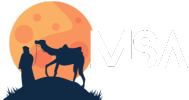Morocco, a country of breathtaking landscapes and rich traditions, often sparks curiosity about its cultural and legal norms. For couples planning a visit, a common question arises: Can we stay in the same room if we’re not married? The answer depends on several factors, including your nationality and where you plan to stay.

The Legal Framework
Moroccan law prohibits unmarried Moroccan couples from sharing a room, reflecting the country’s Islamic principles. Article 490 of the Moroccan Penal Code criminalizes sexual relations outside of marriage, and this regulation often extends to hotel policies for Moroccan nationals.
However, foreign tourists are generally not subject to the same scrutiny. Hotels and riads are more relaxed with international visitors and rarely ask for marriage certificates. That said, there are exceptions, especially in smaller towns or more conservative regions.
For mixed-nationality couples (one partner is Moroccan), the rules are stricter. Hotels may require proof of marriage, regardless of the other partner’s nationality, due to the legal implications for the Moroccan individual.
Hotels and Accommodation Policies
The type of accommodation you choose plays a big role in how this situation is handled:
- Luxury Hotels and Resorts
High-end establishments catering to international tourists almost never ask for marital status proof. They prioritize guest comfort and discretion, making them the easiest option for couples. - Mid-range Hotels and Riads
These places vary. While many mid-range options are accustomed to hosting foreign travelers, family-owned riads in traditional areas may inquire about your relationship status, especially if they suspect either partner is Moroccan. - Budget and Rural Accommodations
In smaller towns or rural areas, the cultural expectations are stronger, and accommodations might be stricter about enforcing the law, even for foreign tourists.
Practical Tips for Couples
To ensure a stress-free trip, here are some practical tips:
- Do Your Research
Before booking, read reviews and descriptions of the hotel or riad. Websites like Booking.com often indicate whether a place is “tourist-friendly.” - Contact the Hotel Directly
If you’re unsure, reach out to the accommodation and clarify their policies in advance. This can save you from any awkward situations upon arrival. - Avoid Public Displays of Affection (PDA)
While your accommodation might not ask questions, public displays of affection are frowned upon in Moroccan society. Be respectful of the local culture to avoid unwanted attention. - Stay in Major Cities
Cities like Marrakech, Casablanca, and Tangier are more accustomed to hosting international couples. Rural and conservative regions might adhere to stricter customs.
What About Airbnb?
Airbnb is becoming popular in Morocco and offers an alternative for couples. Hosts are often less concerned about marital status, but it’s still a good idea to check reviews and communicate with the host beforehand.
Special Case: Moroccan Nationals
If one partner is Moroccan, even if they live abroad, the rules are far stricter. Hotels are legally obligated to ask for a marriage certificate to avoid potential legal consequences. For such couples, private accommodations like Airbnb are often a better choice.
Understanding the Culture
Even when laws aren’t strictly enforced for tourists, being mindful of Morocco’s cultural norms is important. Many Moroccans are warm and welcoming, but respecting their traditions will ensure your visit is pleasant and without incident.
Key Takeaways
- Unmarried foreign couples can generally share a room in tourist-friendly accommodations without issues.
- Proof of marriage is required if one partner is Moroccan.
- Luxury hotels and international chains are the safest bet for couples.
- Respect local customs, especially in public, to avoid misunderstandings.
By understanding these nuances, you can focus on enjoying Morocco’s enchanting medinas, majestic mountains, and stunning deserts without worrying about accommodation issues.
